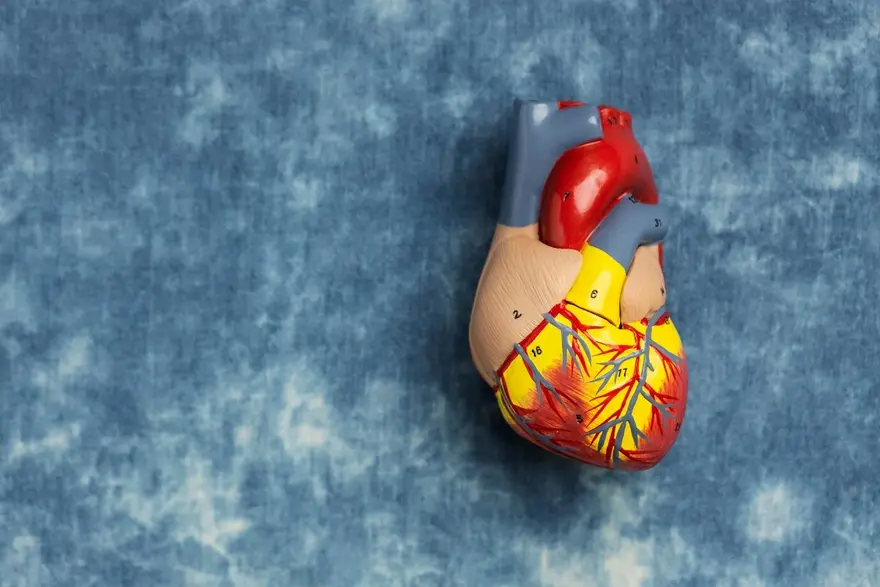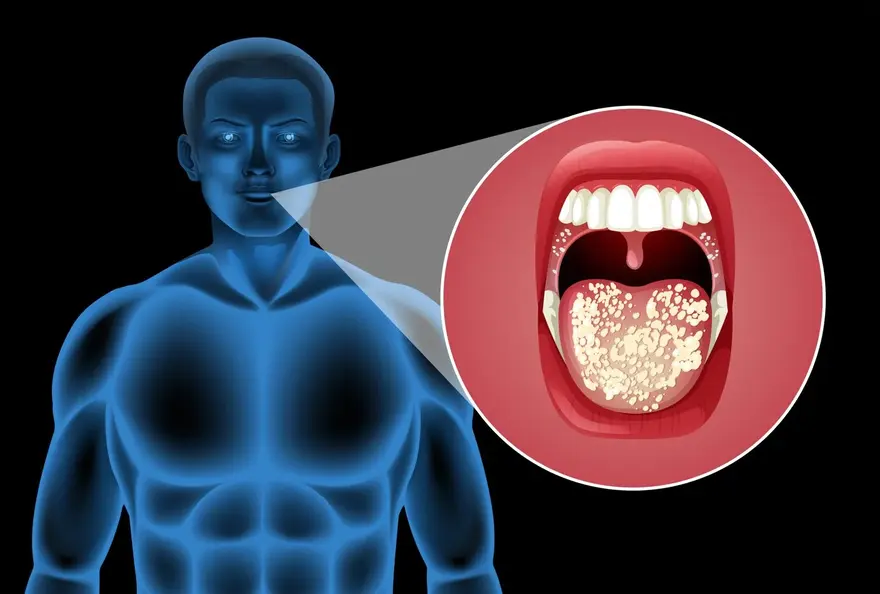Preventive Healthcare
Postmenopause: Managing Changes and Staying Healthy
116 Views
0
1743758768.webp)
What is Postmenopause?
Postmenopause refers to the stage of life that begins 12 months after a woman's last menstrual period, marking the end of the menopausal and postmenopausal transition. During this phase, the ovaries have stopped releasing eggs and producing significant amounts of estrogen. The meaning of postmenopausal life is unique for each woman, influenced by various physical, emotional, and health factors.
For many women, postmenopause brings a sense of freedom from monthly periods and the ability to focus on personal goals and well-being. However, the hormonal changes associated with this stage can also present new challenges and health concerns. Understanding the common symptoms, potential risks, and effective management strategies is crucial for navigating postmenopause with confidence and vitality.
Some key facts about postmenopause:
- The average age of reaching postmenopause is 51 in most countries.
- Postmenopause is a normal, natural part of ageing for women.
- Hormonal fluctuations can continue for several years into postmenopause.
- Lifestyle factors significantly impact postmenopausal health and quality of life.
Symptoms of Postmenopause
While every woman's experience is unique, several common post menopausal symptoms can arise due to the significant drop in estrogen levels:
- Hot flushes and night sweats: Sudden feelings of heat, often accompanied by sweating and flushing, which can disrupt daily activities and sleep.
- Vaginal dryness and discomfort: Reduced moisture and elasticity, leading to irritation or pain during intimacy.
- Mood changes: Increased irritability, anxiety, or depression due to hormonal shifts.
- Sleep disturbances: Difficulty falling or staying asleep, often linked to night sweats.
- Urinary tract issues: Higher risk of infections or incontinence due to weakened bladder muscles.
- Bone loss: Decreased bone density, increasing the risk of fractures.
- Skin changes: Loss of collagen causing dryness and wrinkles.
- Sexual health concerns: Lower libido and potential discomfort during intercourse.
It's important to note that the severity and duration of these symptoms of postmenopause vary greatly among women. While some may experience intense symptoms for several years, others may have milder or shorter-lasting discomfort. Factors like genetics, lifestyle habits, and overall health can influence the manifestation of postmenopausal symptoms.
If you're experiencing bothersome post menopausal symptoms, remember that help is available. Don't hesitate to consult your healthcare provider to discuss your individual needs and develop a personalised management plan.
Health Risks Associated with Postmenopause
Beyond the immediate post menopausal symptoms, postmenopause also brings long-term health risks due to reduced estrogen levels. Understanding these risks can help women take proactive steps to maintain their well being.
Cardiovascular Disease
Women in postmenopause face a higher risk of heart disease and stroke. Changes in cholesterol levels and reduced elasticity of blood vessels increase the likelihood of high blood pressure and other cardiovascular issues. A heart-healthy diet, regular exercise, and routine check-ups can help manage this risk.
Osteoporosis
The body experiences accelerated bone loss after menopause, increasing the risk of osteoporosis. This condition leads to weak, brittle bones, making fractures more likely. Calcium-rich foods, vitamin D, and weight-bearing exercises can support bone health.
Urinary Incontinence
Weakened pelvic floor muscles and thinning of the urethral lining may cause bladder control issues. Pelvic exercises, hydration, and medical treatments can help improve urinary health.
Cognitive Changes
Some postmenopausal women experience memory lapses, difficulty concentrating, or a higher risk of dementia. Staying mentally active, maintaining social connections, and following a healthy lifestyle may support cognitive function.
Skin and Hair Changes
Reduced collagen production can lead to wrinkles, sagging skin, and thinning hair. Hydration, skincare, and a nutrient-rich diet may help counteract these effects.
Regular health check-ups, including bone density scans, mammograms, and cardiovascular screenings, are essential in postmenopause to ensure long-term wellness.
Managing Postmenopausal Symptoms
Navigating postmenopause involves a combination of self-care practices, lifestyle adjustments, and medical interventions when necessary. Here are some effective strategies for managing common post menopausal symptoms:
- Hormone replacement therapy (HRT): For women with severe symptoms, HRT can help alleviate hot flushes, vaginal dryness, and bone loss. Discuss the benefits and risks with your GP.
- Vaginal moisturisers and lubricants: Over-the-counter products can help relieve vaginal dryness and discomfort, enhancing sexual well-being.
- Pelvic floor exercises: Regularly practicing Kegel exercises can strengthen the pelvic muscles, improving bladder control and sexual function.
- Healthy diet: Eating a balanced diet rich in calcium, vitamin D, and phytoestrogens (found in foods like soybeans and flaxseeds) can support bone health and overall well-being.
- Regular exercise: Engaging in a mix of aerobic, strength training, and flexibility exercises can help manage weight, improve mood, and reduce the risk of chronic diseases.
- Stress management: Techniques like deep breathing, meditation, and yoga can help alleviate mood swings, anxiety, and sleep disturbances.
- Staying connected: Maintaining social connections and open communication with loved ones can provide emotional support and reduce feelings of isolation.
Remember, there is no one-size-fits-all approach to managing postmenopause. It's essential to work closely with your healthcare provider to develop a personalised plan that addresses your unique needs and concerns.
Lifestyle Changes for Postmenopausal Health
While some women may experience relief from menopausal and postmenopausal symptoms like hot flashes and mood swings, others may face new challenges such as bone loss and an increased risk of heart disease. Adopting healthy lifestyle habits is crucial for managing these changes.
- Exercise plays a vital role. Engaging in regular physical activity, particularly weight-bearing exercises and aerobic activities, can help maintain bone mass, reduce the risk of osteoporosis, and improve cardiovascular health
- Focus on consuming a variety of nutrient-dense foods, including calcium-rich sources, vitamin D-rich foods or supplements to aid in calcium absorption, lean proteins, whole grains, and healthy fats.
- Staying hydrated is also crucial, as hormonal changes during postmenopause can lead to vaginal dryness and bladder issues. Aim to drink at least 8 glasses of water per day and limit caffeine and alcohol intake.
- Quit smoking, manage stress, and maintain a healthy weight to reduce the risk of heart disease, osteoporosis, and certain cancers.
- Prioritise sleep and aim for 7-9 hours per night to support overall health and well-being.
Medical Treatments and Therapies
While lifestyle changes can support postmenopausal health, some women may require medical treatments to manage symptoms and reduce long-term risks.
- Hormone Replacement Therapy (HRT): HRT is a common option for alleviating post menopausal symptoms such as hot flashes, night sweats, mood swings, and vaginal dryness. By replenishing estrogen levels, it can improve overall well-being. However, HRT isn’t suitable for everyone, so it’s important to discuss the risks and benefits with a healthcare provider.
- Vaginal Estrogen Treatments: For women experiencing vaginal dryness or discomfort, localised estrogen therapy—such as creams, rings, or tablets—can restore moisture and improve comfort without affecting the whole body.
- Bone Health Medicines: Women in postmenopause face a higher risk of osteoporosis. Medications like bisphosphonates or denosumab help maintain bone density and reduce fracture risk. Regular bone density scans can guide treatment decisions.
- Other Medical Interventions: Women with high blood pressure or cholesterol may need medications to lower their cardiovascular risks. Personalised postmenopause treatment plans ensure optimal long-term health.
When to See a Doctor
While some changes during postmenopause are normal, it's essential to consult a healthcare provider if you experience severe or persistent symptoms that impact your quality of life. Some signs that warrant medical attention include:
- Heavy or prolonged vaginal bleeding
- Frequent urinary tract infections or incontinence
- Severe mood changes or depression
- Persistent hot flashes that interfere with daily activities or sleep
Regular check-ups with your healthcare provider are crucial for monitoring overall health and managing any chronic conditions that may arise or worsen during postmenopause. These visits may include:
- Annual physical exams
- Mammograms and cervical cancer screenings
- Bone density scans
- Blood pressure, cholesterol, and blood sugar tests
Conclusion: Embracing Postmenopause
Postmenopause is a natural phase of life that brings both challenges and opportunities for growth and self-care. By understanding the meaning of postmenopausal changes and adopting healthy lifestyle habits, you can effectively manage symptoms, prevent long-term health issues, and maintain a high quality of life.
Remember, every woman's experience with postmenopause is unique. At Metropolis Healthcare, we understand the importance of personalised care and reliable diagnostic services during this transformative phase. Our team of skilled technicians offers convenient at-home sample collection for a wide range of tests that can help monitor your health postmenopause. Embrace postmenopause as an opportunity to prioritise your well-being and create a fulfilling, vibrant life.























 WhatsApp
WhatsApp